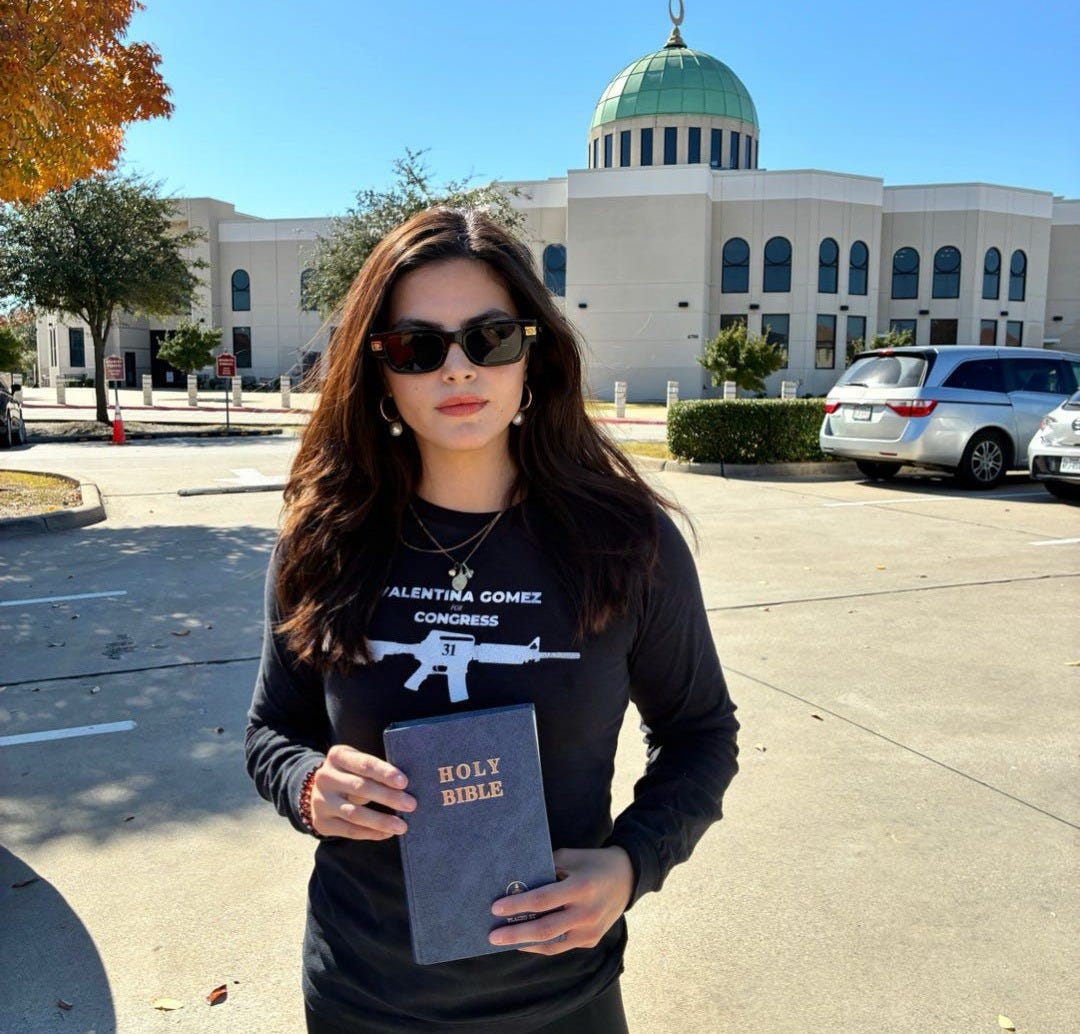Republican congressional candidate Valentina Gomez has faced renewed condemnation after posting a series of anti-Muslim tweets and videos over the past four days, reigniting debates about hate speech and religious intolerance in American politics.
Latest Social Media Posts Draw National Criticism
On November 18 and 19, Gomez posted multiple tweets on X (formerly Twitter) urging Muslims to leave Texas and vowing to end Islam in the state. In one post, she wrote, “Islam has no place in Texas. Help me to Congress so we can end the Islamisation of America,” a statement echoed in several other social media posts over the last four days.
She also reposted video clips showing her previous Quran-burning campaign stunt, captioning one with, “I will end Islam in Texas so help me God,” which went viral and triggered widespread backlash from civil rights organizations and the general public.
Hateful Rhetoric Amplifies Existing Controversy
Gomez’s recent posts revive the controversy that erupted in August 2025, when she filmed herself burning a copy of the Quran and threatened Muslims with violence, declaring, “Your daughters will be raped and your sons beheaded, unless we stop Islam once and for all”. Her latest comments and video reposts have been widely condemned by groups such as the Council on American-Islamic Relations (CAIR), which called her rhetoric a direct threat to religious freedom and social harmony.
“This isn’t politics. It’s incitement. When the mosques start burning, remember: this was the match and the Texas GOP handed her the lighter.”
— Brian Allen, Podcaster
Public and Social Media Reaction
The online community has produced more than 1000 adverse reactions to Gomez’s social media content. Social media users strongly oppose her hate promotion activities. Still, others defend her actions by claiming they violate two vital American values: protecting religious rights and supporting tolerance toward different groups.
A Texas resident expressed his opposition to Gomez by telling her to leave his state because he believes his community needs protection from hateful people who reject fundamental human rights, including the First Amendment. Social media users showed how the Quran treats Jesus and Mary with respect, yet Gomez revealed her hypocrisy by having a Jesus fan status. At the same time, she burned a religious text that honors both figures.
Political Accountability and Legal Concerns
CAIR and other civil society organizations have demanded that Gomez be held accountable for her statements, warning that such rhetoric incites violence and puts Muslim communities at risk. While Gomez’s social media posts have been restricted or removed on some platforms for violating hate speech policies, her content remains visible on X.
Her inflammatory messaging is part of a broader pattern of targeting marginalized groups, including Muslims, Black Americans, and immigrants, to generate online notoriety and political attention.
Campaign Impact and Social Consequences
Gomez’s recent posts reflect her strategy of leveraging anti-Muslim sentiment to gain visibility ahead of the 2026 midterm elections. However, this approach has so far failed to translate into electoral success, with her previous campaigns marked by low support and widespread public rejection.
As social media becomes a central battleground for political discourse, Gomez’s actions highlight ongoing challenges in holding candidates accountable for hate speech and protecting the rights of religious minorities in the United States.



